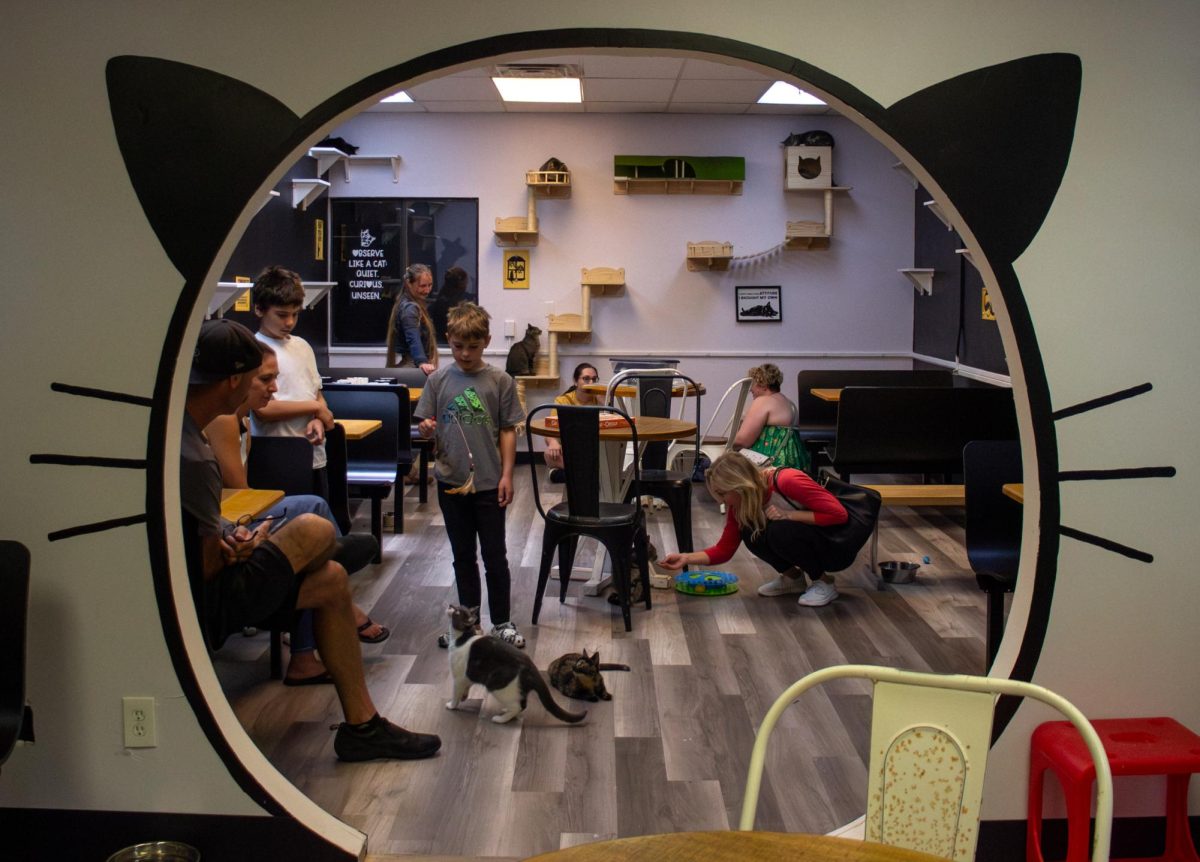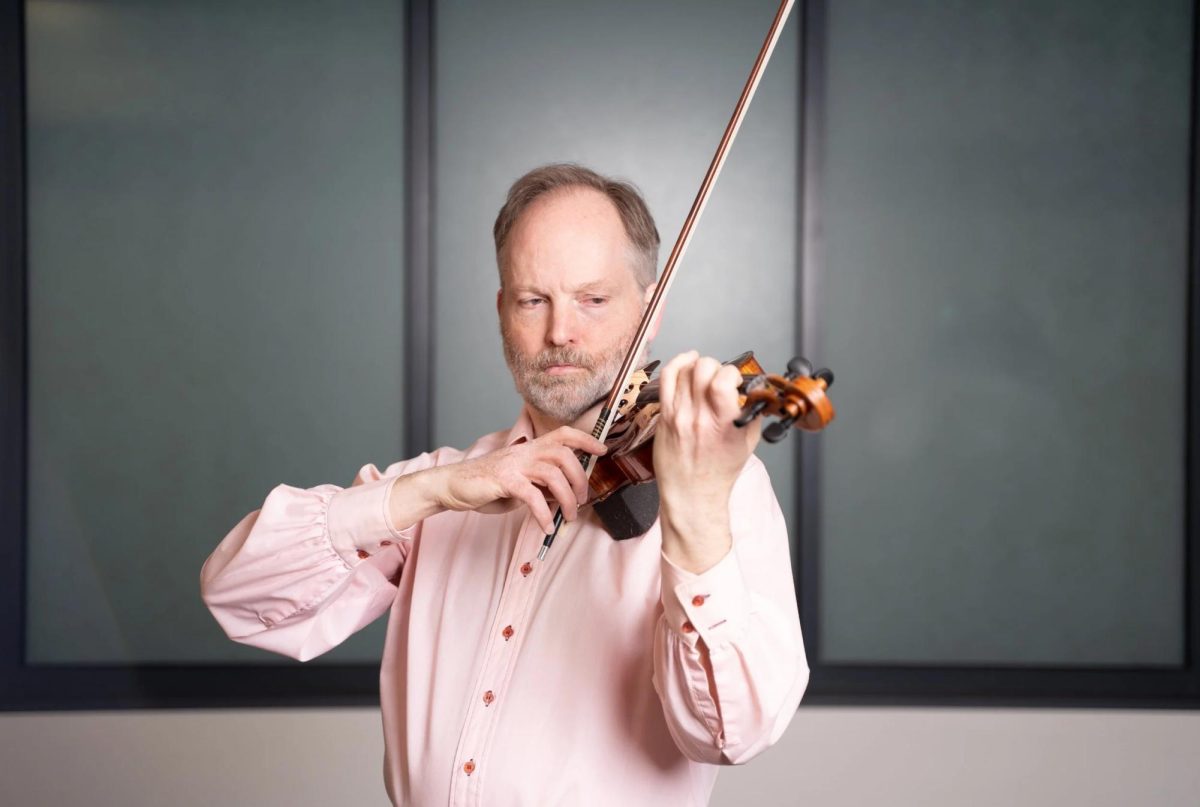The lecture “Ute Language Revitalization: Lessons and Challenges” was given to a crowded room, and was so popular that latecomers had to sit on the floor.
The lecture was given by Dr. Stacey Oberly, an enrolled member of the Southern Ute Tribe and a tribal council member, on April 27 at 7 p.m. in Houston Hall room 139. Oberly is a renowned Ute language, endangered languages and Indigenous cultural activist with over thirty years of experience.
Oberly is a notable advocate for the revitalization of the Ute language, which is currently critically endangered. She has developed numerous language programs for the Ute people in order to keep their native tongue alive. There has been adversity within her own community as well.
The event was hosted by the Department of Social and Behavioral Sciences, the Native American Student Association (NASA), the Colorado Mesa University Foundation and the Michrina Fund.
“I cannot think of a better way that we can honor the memory of Dr. Michrina than through the lecture series that my colleagues have established. I felt invigorated at the event [that] night to see such an outpouring of support and high level of scholarly engagement shared by our students, faculty, staff and community. I hope to see continued engagement with the larger community through free educational events like this,” Professor of history Erika Jackson said.
Oberly discussed the challenges as well as what she has learned, from her experience of helping to revive the Ute language. She highlighted how colonization played a major role in the near extinction of the language due to the “checkerboarding” of reservations, forced boarding schools and assimilation into the new world that colonizers created.
Forced assimilation of the Ute people began in the late 19th century when the American government implemented a policy of cultural genocide, which included the boarding school experience. These schools were designed to strip the Ute children of their language and culture, replacing it with English and a Western lifestyle. The Ute children were sent away from their families, forbidden to speak their language and taught a strictly enforced curriculum that included religion, mathematics and English.
This, along with other experiences, had a profound impact on the Ute language and culture. The Ute children were not allowed to speak their native language and were punished if they were caught doing so. This created a feeling of shame and embarrassment in the children, which had a lasting impact on how the survivors continued.
“When someone asks why I decided to become a professor, I always tell them it was out of a desire to stay in college forever. I am continuously learning from my students and colleagues. At the Michrina lecture, I learned of the linguistic structures involved in the Ute language, as well as the power dynamics involved within and outside local communities to share the Ute language with Indigenous youth, as well as ‘outsiders.’ Language keeps the memory of those lost to historical atrocities alive,” Jackson said.
A display with the history of Teller Institute, a former boarding school in Grand Junction, can be found on the third floor of the Tomlinson Library in the special collections area.








